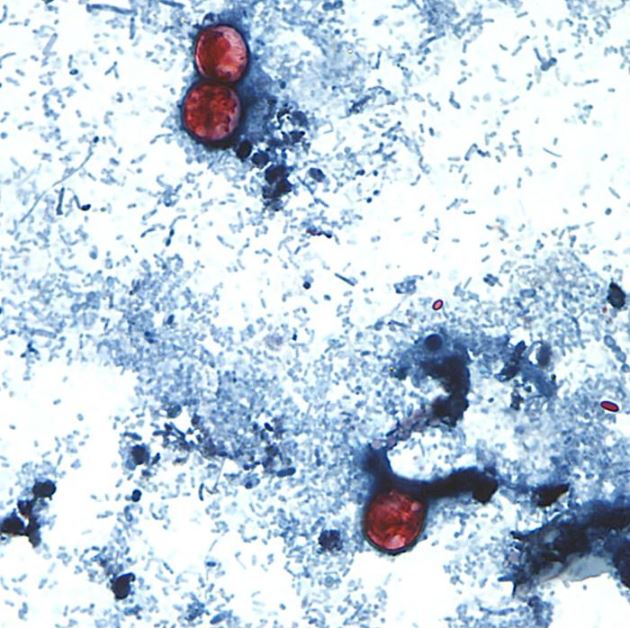
Foodborne Parasite Sickens 100 in Massachusetts. No Source Has Been Found.

Infections with an intestinal parasite have surged in Massachusetts in recent months, according to health officials.
Since May, more than 100 people in the state have been sickened by a parasite called Cyclospora, according to the Massachusetts Department of Public Health (DPH). This case count is much higher than usual; during the past three years, only 18 to 33 cases have been reported in the state each year.
The single-celled parasite, Cyclospora cayetanensis, is typically transmitted through contaminated food, but so far, health officials have not identified a food source responsible for the Massachusetts outbreak.
Infections with the parasite are most common in tropical and subtropical countries. But in the United States, outbreaks of the illness, known as cyclosporiasis, have been linked with imported fresh produce, including raspberries, basil, snow peas, mesclun lettuce and cilantro, according to the Centers for Disease Control and Prevention (CDC).
Symptoms typically include watery diarrhea, loss of appetite, abdominal cramping, nausea and prolonged fatigue, according to the DPH.
Massachusetts isn't the only state with a spike in Cyclospora cases this year. Officials in Virginia are investigating dozens of suspected infections with the parasite, according to The Washington Post. And officials in Maryland confirmed 42 Cyclospora cases, most of which occurred in the past two weeks, The Post reported. It's unclear if all of the outbreaks are connected.
Overall, at least 11 states reported cases of Cyclospora from May 1 through June 27, according to data from the CDC.
Get the world’s most fascinating discoveries delivered straight to your inbox.
- Top 7 Germs in Food That Make You Sick
- 8 Awful Parasite Infections That Will Make Your Skin Crawl
- 27 Devastating Infectious Diseases
Originally published on Live Science.

Rachael is a Live Science contributor, and was a former channel editor and senior writer for Live Science between 2010 and 2022. She has a master's degree in journalism from New York University's Science, Health and Environmental Reporting Program. She also holds a B.S. in molecular biology and an M.S. in biology from the University of California, San Diego. Her work has appeared in Scienceline, The Washington Post and Scientific American.
 Live Science Plus
Live Science Plus





